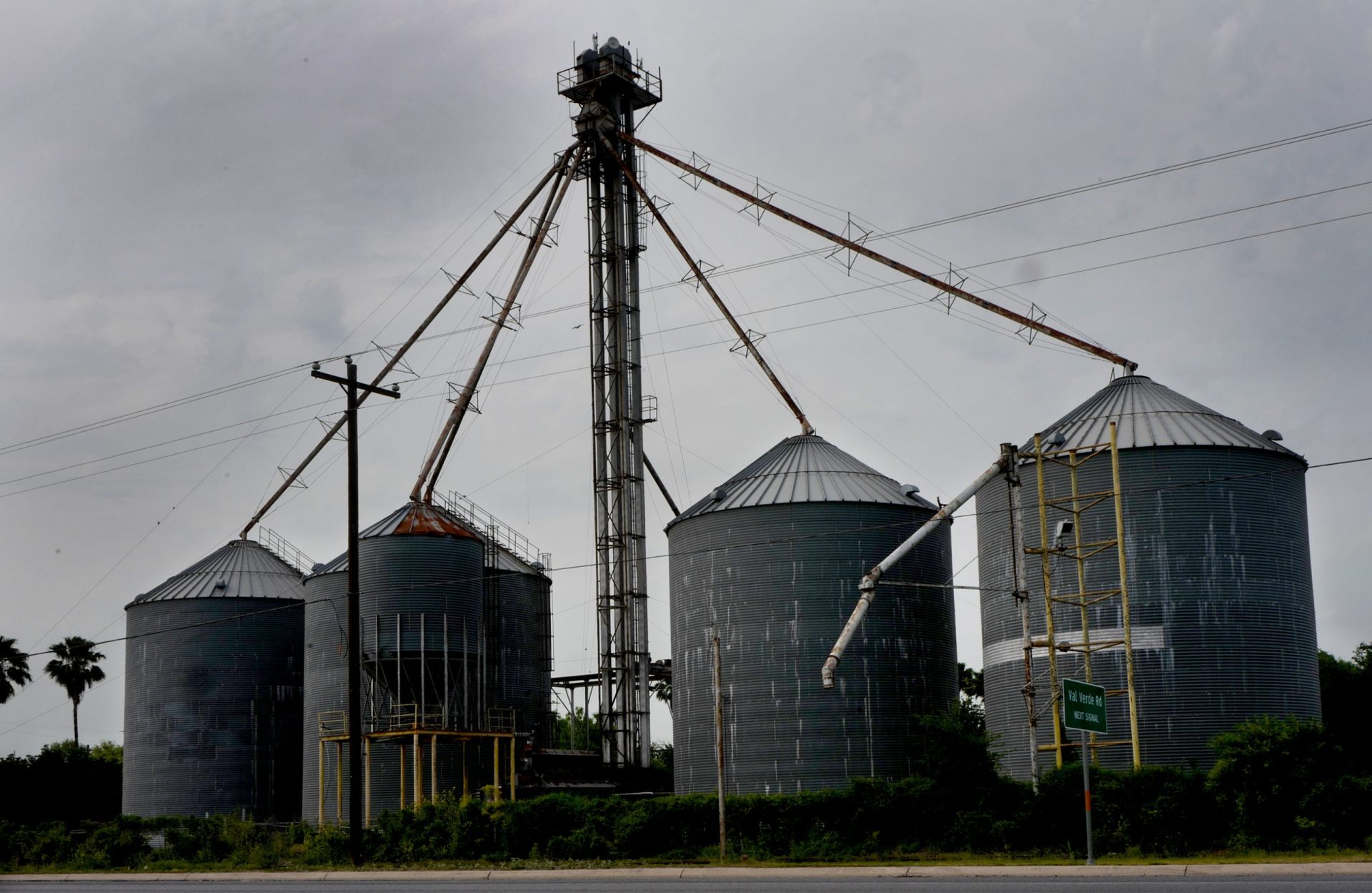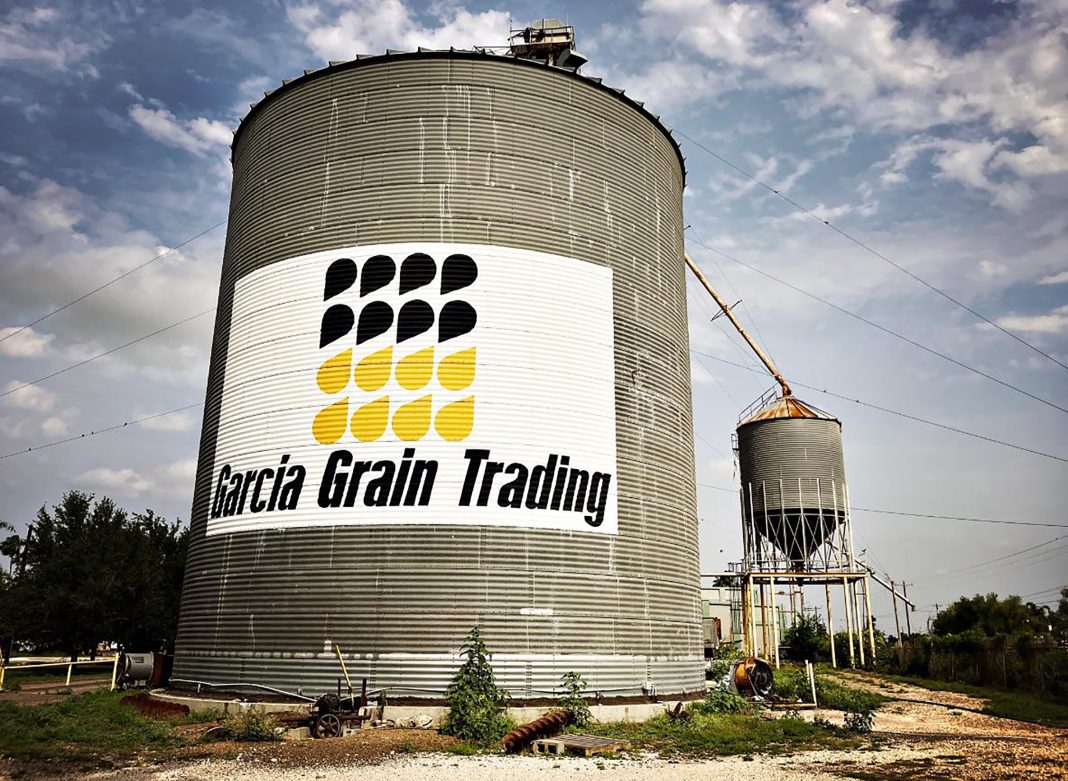|
Only have a minute? Listen instead
Getting your Trinity Audio player ready...
|
A federal bankruptcy judge has given Garcia Grain Trading Corp. the greenlight to temporarily lease two of its grain elevators ahead of what is expected to be a bountiful summer harvest.
Chief U.S. Bankruptcy Judge Eduardo V. Rodriguez approved the nine-month-long leases of Garcia Grain’s Progreso and Santa Rosa grain elevators during an emergency hearing held via Zoom on Tuesday.
With the ruling, Garcia Grain has been allowed to lease the Santa Rosa and Progreso elevators to a Harlingen-based company called Texas Valley Grain LLC.
Under the agreement, Texas Valley Grain will attempt to move at least 25,000 metric tons of grain at each facility between now and Aug. 31, 2022.
Should Texas Valley Grain fail to process the 50,000 metric tons of grain by the end of the summer, then the lease will terminate.
However, if the company does succeed, then the leases will continue until Feb. 29, 2024, explained David R. Langston, the attorney representing Garcia Grain.
All the proceeds from Texas Valley Grain’s operation of the elevators will go toward paying down the principal debt owed to the secured creditors who have liens on the facilities.
Vantage Bank has the first lien against the Santa Rosa elevator, though the bank’s own attorneys were unsure of the amount of debt that has been collateralized.
“There’s approximately $8.7 million owed to Vantage Bank… and we don’t know how much was secured, your honor,” said Vicki M. Skaggs, the attorney representing Vantage Bank.
That’s due, in part, to at least one piece of property that Garcia Grain has incorrectly listed in court filings as collateral in its bankruptcy that is, instead, associated with another debt, Skaggs explained.

“I wanted to clarify that because that does affect the security position of the bank as to Garcia’s notes,” Skaggs said.
“We don’t know if the bank is, in fact, over secured, under secured, or what,” Skaggs added a moment later to emphasize the uncertainty.
Tuesday’s ruling came just hours before the beleaguered grain storage company lost the insurance coverage protecting the facilities, their equipment and whatever grain is currently stored within.
Some months ago, Garcia Grain’s insurance carriers notified the company that they would not be renewing their policies, which were set to expire as of June 1.
Though Garcia Grain hasn’t been able to operate its facilities itself since the Texas Department of Agriculture canceled its operating licenses earlier this year, the insurance lapse meant that any potential lessors wouldn’t be able to use the facilities, either.
Texas Valley Grain will be able to operate the facilities thanks to the lien holders purchasing “force-placed” insurance.
Vantage Bank will be paying to insure the Santa Rosa facility, while Falcon Bank will be paying to insure the Progreso grain elevator, Langston said.
“We are moving forward, as well, your honor, on that lease and making clear that the payments… will be going to Falcon Bank, since it owns the first lien deed of trust. It will be paid to Falcon Bank, who, in turn, will force place property insurance on it,” Langston said.
The question of which creditor has first claim to grain assets at that facility, however, remains murkier.
“There have been, basically, three claims that have been filed. One on behalf of StoneX, one on behalf of Grain Chain, one on behalf of Vantage Bank,” Langston said.

The court is currently in the process of making a determination of ownership of the existing grain.
Aside from the issue of the temporary leases, Garcia Grain has also been grappling with damage that was inflicted at the Progreso facility during a recent wind storm, which damaged some grain that was stored there and reduced the facility’s overall storage capacity to just 7,000 metric tons.
Garcia Grain has already received a $250,000 advance check from its insurance company to repair the damage, Langston said.
He suggested depositing the check, which was made out to Garcia Grain and two of its creditors, into a debtor-in-possession bank account to ensure the funds are used solely for the rehabilitation of the damaged silos.
Meanwhile, Garcia Grain’s largest secured creditor, StoneX Commodities Solutions, has begun to move forward on an idea it first mentioned during an April 6 hearing — changing the nature of Garcia Grain’s bankruptcy.
Garcia Grain owes StoneX about $20 million of the approximately $41 million in debt held by its four secured creditors.
During the April hearing, StoneX’s attorney, David Houston, suggested that Garcia Grain’s attempt to restructure under its current Chapter 11 filing may prove unsuccessful. That doing so may not allow the company to fully repay the secured creditors.
Houston suggested that the only viable option may be through a Chapter 7 liquidation instead.
Just days after mentioning it in open court, StoneX filed a motion to force Garcia Grain to liquidate.
But that course of action would likely leave Garcia Grain’s dozens of unsecured creditors — many of them local farmers — hanging out to dry. And already, one of those unsecured creditors has filed their opposition.
The judge is expected to hear arguments regarding StoneX’s Chapter 7 conversion motion later this month.





